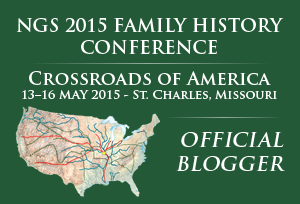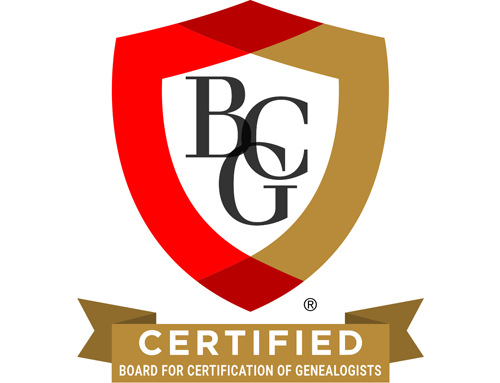SpringBoard, an official blogger for the 2015 NGS Family History Conference, is pleased to offer a review of this Skillbuilding lecture, presented Friday, 15 May 2015:
F301: Ann Carter Fleming, CG, CGL, FNGS, “Problem Solving: Using a Cast of Characters,” reviewed by Melissa A. Johnson, CG.
In her problem-solving lecture, Ann Carter Fleming demonstrates how genealogists can use Elizabeth Shown Mills’s “FAN” principle to learn more about their ancestors.
 She emphasizes that all researchers—not just professionals—should put this concept into practice to break down brick walls. She also notes the importance of reasonably exhaustive research, and that this approach should be used for difficult problems that cannot be solved with direct evidence. “If it’s easy, don’t bother with this,” she tells the audience.
She emphasizes that all researchers—not just professionals—should put this concept into practice to break down brick walls. She also notes the importance of reasonably exhaustive research, and that this approach should be used for difficult problems that cannot be solved with direct evidence. “If it’s easy, don’t bother with this,” she tells the audience.
Ann likens her research subject’s FAN club (friends, associates, and neighbors) to John Wayne’s “cast of characters”—the bartender, hotel owner, and sheriff, to name a few. She believes that every research subject has a cast of characters—the group of people who surrounds him or her. She encourages her listeners to discover who these people are and to study them in depth. “Research unrelated people . . . as vigorously as you do your own,” she says.
Ann goes through her step-by-step process for discovering and researching an ancestor’s “cast of characters.” She covers the initial research phase, how to gather facts, different ways to organize information, and, of course, citing sources. She uses examples from several families to illustrate her points. Ann also warns researchers that this process may take time, but looking at an ancestor’s “cast of characters” will lead to records that otherwise may have been undiscovered. Thank you, Ann, for sharing your expertise through this informative lecture.

A recording of this lecture may be ordered from Jamb Tapes, Inc.
CG, Certified Genealogist, CGL, and Certified Genealogical Lecturer are service marks of the Board for Certification of Genealogists, used under license by Board-certified genealogists after periodic competency evaluation, and the board name is registered in the US Patent & Trademark Office.

